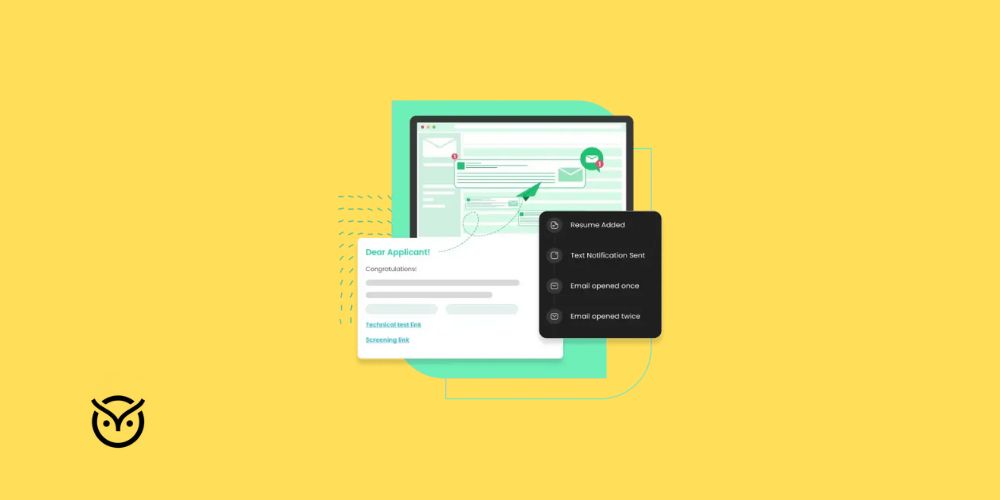
TL;DR
- Situational questions test how you act under pressure or conflict
- Use the STAR method (Situation, Task, Action, Result) to answer
- Show real examples that highlight soft skills like teamwork and accountability
- Practice common scenarios like tight deadlines or mistakes
- Be clear, honest, and focused when sharing your stories
You walk into the interview feeling confident. The small talk’s going well—and then the hiring manager leans in and says, “Tell me about a time you had to deal with a difficult teammate.” Suddenly, your mind races. Do you go with that story from your last job? What do they really want to hear?
If that sounds familiar, you’re not alone. Figuring out how to answer situational interview questions right isn’t just about memorizing a script — it’s about sharing your story in a way that feels real, shows who you are, and helps the interviewer see you in the role. This blog will walk you through how to tackle these questions with confidence, share real-life examples, and give you the tools to stand out in your next job interview.
What Are Situational Interview Questions?

Situational interview questions are those “what would you do if…” or “tell me about a time when…” kind of questions that interviewers use to see how you think, act, and adapt in real-world scenarios. They’re not just checking off your resume. They’re imagining you in the role, dealing with actual challenges.
These questions dig deeper than basic job qualifications. They’re designed to uncover your approach to problem-solving, teamwork, communication, and leadership key traits in just about any role.
Think of it like this: the interviewer wants a sneak peek into how you operate when things get real. And that’s why nailing your response with the best way to answer situational questions, through storytelling and structure, can leave a lasting impression.
Situational or Not?
Flip each card to find out if it’s a situational interview question or not.
Why Employers Ask Situational Questions

When an interviewer asks you to walk them through a past experience or imagine a tricky scenario, they’re really just trying to see how you think on your feet – how you make decisions, how you talk things through, and how you handle people and pressure. According to Ivy Exec, 97% of employers report valuing soft skills—including communication, teamwork, and adaptability—as much or more than hard skills. That’s exactly why situational interviews are so vital: they help reveal how candidates truly behave in real work situations.
These questions help them figure out:
- Can you stay calm under pressure?
- Do you work well with others?
- How do you handle mistakes or conflict?
- Are you proactive or reactive in tough situations?
Score Your STAR Story Like a Hiring Manager
Use the sliders to score your own interview story. Be honest — how well does it show these traits?
🧨 Conflict with a Teammate
⏰ Tight Deadline
⚠️ Made a Mistake
Common Situational Interview Questions and Sample Answers

The best way to prepare for a situational interview? Practice real-life scenarios. Below are common situational interview questions along with sample answers to help you get into the right mindset.
1. Tell me about a time you had to meet a tight deadline.
Why they ask: They want to see how you prioritize tasks and perform under pressure.
Sample Answer (Using STAR Method):
At my last job, we had a client request that came in late on a Friday, and it needed to be completed by Monday morning. (Situation) I was the lead on the project, so I gathered the team right away and broke the task into smaller chunks. (Task) We created a shared timeline, delegated responsibilities, and worked late Friday and part of Saturday. (Action) By Sunday, everything was done, and the client was thrilled with the result. (Result) It taught me the value of planning quickly and leaning on teamwork when time is short.
2. Describe a time when you had a conflict with a coworker. How did you handle it?
Why they ask: They want to see how you handle tough situations without losing your cool or professionalism.
Sample answer:
At a previous job, a coworker and I didn’t see eye to eye on how to handle a customer problem. (Situation) Rather than let it escalate, I suggested we step aside and talk it out privately. (Task) I listened to their perspective, shared mine, and we realized we both wanted the same outcome, just in different ways. (Action) We came up with a compromise and even used it as a model for future cases. (Result) That moment helped us build mutual respect and work better together moving forward.
3. Give an example of a time you made a mistake at work.
Why they ask: They want to know if you take accountability and learn from errors.
Sample Answer:
Once, I accidentally sent the wrong version of a report to a client. (Situation) I realized the error within an hour, owned up to it immediately, and sent the corrected version along with a clear explanation. (Action) I then created a checklist system to prevent the same mistake from happening again. (Result) The client appreciated my honesty, and we didn’t lose trust. In fact, they praised our transparency.
4. Tell me about a time you went above and beyond for a customer or project.
Why they ask: They want to see your drive and willingness to do more than just the basics.
Sample answer:
During a product launch, a customer was struggling to implement our tool in time for their internal rollout. (Situation) I stayed late multiple evenings to guide them through the setup and even created a custom walkthrough video. (Action) The rollout went smoothly, and they ended up expanding their contract with us. (Result) Going that extra mile felt worth it when we saw the impact it had.
Common Situational Interview Questions
Click to reveal the STAR answers step-by-step.
1. Tell me about a time you had to meet a tight deadline.
Situation: A client request came in late Friday due Monday. I was project lead.
Task: Deliver the final asset with no delays.
Action: Split the work with the team, worked late Friday and Saturday.
Result: Delivered ahead of time, client was thrilled.
2. Describe a time when you had a conflict with a coworker.
Situation: Disagreement over handling a customer issue.
Task: Resolve the disagreement quickly and effectively.
Action: Had a private conversation, aligned on the goal.
Result: Found a compromise and built a stronger relationship.
3. Give an example of a mistake you made at work.
Situation: Sent wrong version of a report to a client.
Task: Correct it quickly and restore trust.
Action: Admitted mistake, sent correction, added checklist.
Result: Client appreciated honesty and transparency.
Step-by-Step Guide to Answering Situational Questions

Learning how to respond to situational interview questions may seem challenging at first, but if you take it step by step, it is much easier to prepare and provide a solid response to the interviewer. Here’s a simple guide to help you shine:
Listen Carefully and Understand the Question
Take a second to actually listen to the question(s) the interviewer is asking before you jump in. Sometimes these questions can be a little ambiguous or tricky. If you don’t understand something, feel free to ask for clarification or just take your time thinking things through before you answer.
Choose a Relevant Real-Life Example
Think of a story from your own experience that fits the question. It doesn’t have to be a perfect interview; interviewers actually appreciate honesty and learning moments. What matters most is showing how you thoughtfully handled the situation.
Be Specific but Concise
Share enough detail so your story makes sense, but don’t go on forever. Aim for about one to two minutes, long enough to paint a clear picture but short enough to keep things moving and keep your interviewer interested.
Highlight Your Skills and Qualities
When you tell your story, focus on the skills you used, whether that’s solving a tricky problem, working with a team, communicating clearly, or stepping up as a leader. Interviewers aren’t just interested in what you did; they want to know how you did it and what that says about you.
Practice Your Responses
You don’t need to memorize your answers like a script, but practicing some common situational questions can really help you feel more relaxed and natural. Try running through your stories with a friend or even talking them out loud in front of a mirror, whatever makes you feel ready and confident.
Build Your STAR Answer
Drag each statement to the right STAR category.
Situation
Task
Action
Result
Conclusion
Determining how to answer situational interview questions doesn't have to be a mystery. It's really just being authentic, sharing your real-life experiences, and showing how you respond to problems. If you prepare, practice, and focus on sharing your experiences clearly and directly, then you will communicate confidently and genuinely.




